Beyond Flavor: Top African Spices You Need in Your Diet.

Have you ever felt like your meals are missing something? You may have been making an effort to eat healthily, but you still feel that your meals lack depth or flavor. That happens to the best of us, even the best chefs find that their meals don’t quite hit the satisfactory spot on their insides sometimes, so you’re not alone in this struggle.
While we’re still trying to process that information, let’s talk healthy a bit. Many people are looking for practical solutions in an age where health concerns including chronic fatigue, inflammation, and digestive disorders are becoming increasingly common. These days, a lot of people struggle with long-term health problems brought on by bad eating and lifestyle choices. Our diets are fueled by processed foods, which can result in a lack of nutrients and several related problems. You may be fed up with using drugs that just provide short-term fixes for your problems without addressing their underlying causes. Best believe that most of the time, incorporating African spices in all their heat and flavor is the best solution for us. These spices not only improve our food but also have several therapeutic benefits that can change our health.
Let’s explore a few of them!
- Ginger

Well known for its anti-inflammatory qualities, ginger (Zingiber officinale) is a common ingredient in many African meals.
Health Benefits
- Great Digestive Aid:Ginger helps to improve digestion and reduce nausea. Those who suffer from morning sickness or motion sickness will find it especially beneficial.
- Pain Relief:Ginger is a great post-workout treatment because studies have shown that it can lessen muscle soreness and pain.
- Anti-Inflammatory Properties:Ginger’s active ingredients, notably gingerol, have been connected to a decrease in inflammation in diseases like arthritis.
- 2. The Golden Spice: Turmeric

Many people refer to turmeric (Curcuma longa) as “the golden spice” because of its bright color and many health advantages.
Health Benefits:
- Anti-Inflammatory:Curcumin, the active compound in turmeric, is known for its powerful anti-inflammatory effects. This makes turmeric beneficial for those suffering from chronic inflammatory diseases.
- Antioxidant Effects:Turmeric helps combat oxidative stress by neutralizing free radicals in the body.
- Brain Health:According to certain research, curcumin may raise BDNF (brain-derived neurotrophic factor) levels, which could enhance cognitive performance.
- 3. Clove
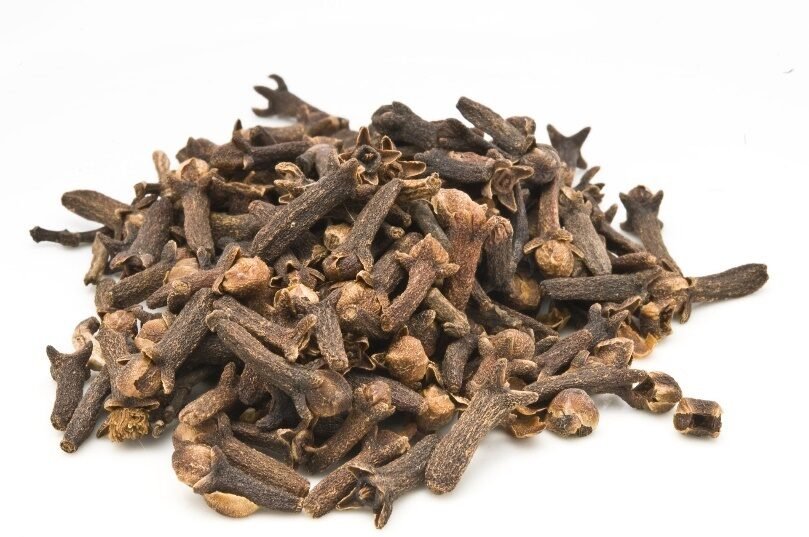
Not only is clove (Syzygium aromaticum) a fragrant spice, but it also has remarkable therapeutic qualities.
Health Benefits:
- Antimicrobial Properties:Cloves contain eugenol, which has been shown to have strong antimicrobial effects. This makes cloves effective against various pathogens.
- Pain Relief:Clove oil is often used topically for toothaches due to its analgesic properties.
- Digestive Health:Cloves can help improve digestion by stimulating the production of digestive enzymes.
You can use ground cloves in baked goods or steep whole cloves in hot water for a comforting tea.
4. Curry Powder
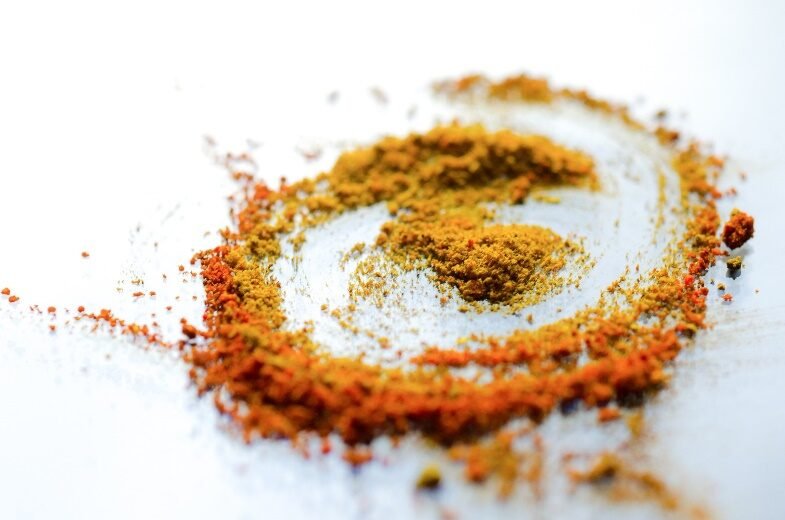
Curry powder is a blend of several spices, typically including turmeric, cumin, coriander, and fenugreek. This mix not only adds flavor but also offers various health benefits.
Health Benefits:
- Anti-Inflammatory Effects: The turmeric in curry powder provides anti-inflammatory benefits similar to those of standalone turmeric.
- Heart Health: Some studies suggest that curry powder may help lower cholesterol levels and improve heart health.
- Digestive Aid: The spices in curry powder can stimulate digestion and reduce bloating.
You can use curry powder in stews or marinades for a deliciously spiced dish.
5. Garlic
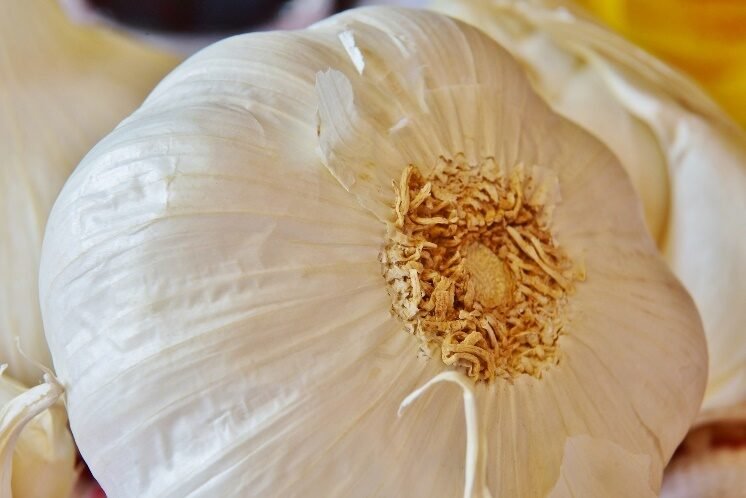
Garlic (Allium sativum) is more than just a flavor enhancer; it’s a potent medicinal herb known for its numerous health benefits.
Health Benefits:
- Immune Support: Garlic is known for its immune-boosting properties due to its high levels of allicin and other sulfur compounds.
- Heart Health: Regular consumption of garlic can help lower blood pressure and cholesterol levels.
- Antimicrobial Properties: Garlic has natural antibacterial and antifungal properties that can help fight infections.
- 6. Paprika: The Colorful Spice

In addition to adding flavor and color to food, paprika (Capsicum annuum) has some nutritional benefits.
Health Benefits:
- Rich in Antioxidants: Paprika contains carotenoids like beta-carotene and lutein that help combat oxidative stress.
- Anti-Inflammatory Properties: The capsaicin in paprika may help reduce inflammation throughout the body.
- Supports Eye Health: The antioxidants found in paprika are beneficial for eye health and may reduce the risk of age-related macular degeneration.
You can sprinkle paprika on roasted vegetables or use it as a seasoning for meats.
7. Nutmeg

Nutmeg (Myristica fragrans) is known for its warm flavor and aroma but also offers various health benefits.
Health Benefits:
- Digestive Aid: Nutmeg has been traditionally used to relieve digestive issues such as bloating and gas.
- Sleep Aid: Nutmeg contains compounds that may promote relaxation and improve sleep quality.
- Anti-inflammatory Properties: Nutmeg has been shown to possess anti-inflammatory effects that can benefit overall health.
Use nutmeg sparingly in desserts, and tasty meals, or add it to warm beverages like chai tea.
8. The Chili Pepper

Because of their active ingredient, capsaicin, chili peppers are not only hot but also full of nutrients.
Health Benefits:
- Metabolism Boosting: Capsaicin has been shown to increase metabolic rate and promote fat burning.
- Pain Relief: Topical applications of capsaicin can alleviate pain associated with conditions like arthritis.
- Heart Health: Regular consumption of chili peppers may lower blood cholesterol levels and improve circulation.
You can add chili peppers to your dishes for an extra kick while reaping their health benefits.
9. Alligator Pepper and Onions
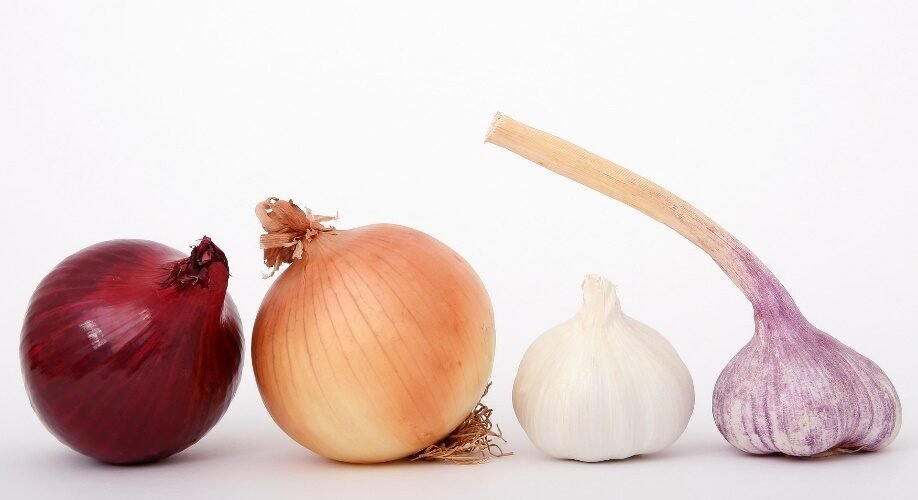
- Traditional African medicine frequently uses alligator pepper (Afromomum melegueta) because of its many health advantages. It can improve immunity and aid in digestion because of its antibacterial qualities.
- Another common spice in Africa, onions (Allium cepa) are high in antioxidants and have anti-inflammatory qualities. If you incorporate them into your diet regularly, they can help control blood sugar levels and promote heart health.
10. Black Pepper & Thyme
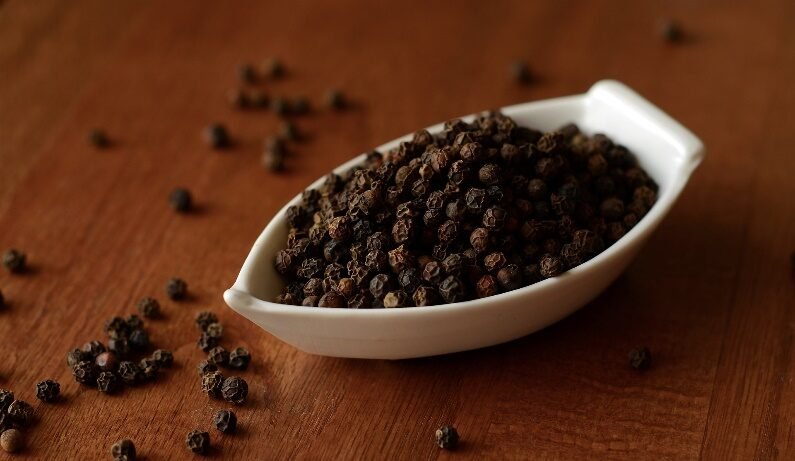
- Black pepper (Piper nigrum), often referred to as the “king of spices,” contains piperine, which enhances nutrient absorption and offers anti-inflammatory benefits.
- Thyme (Thymus vulgaris) is rich in vitamins C and A along with essential oils that have antimicrobial properties. It can aid respiratory issues and boost overall immunity when consumed regularly.
Finally, African spices can increase the taste of our food and provide a multitude of health benefits for our bodies. We can both profit from traditional African cuisine and improve our general health by including these spices in our diet at the same time. It’s always a win-win situation with African spices in our diet.

